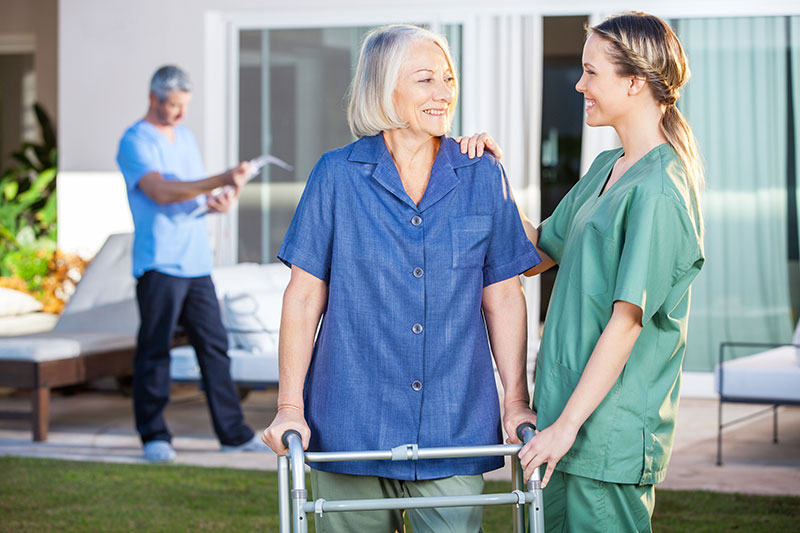Short-term disability and workers’ compensation benefits are two different types of benefits. These policies are not interchangeable, and when determining eligibility for these benefits, the applicant’s medical peer review for insurance is a key consideration.
So, what is short-term disability? It signifies employee benefits often offered by employers as a voluntary benefit. The employee pays for all, or part of the benefit. Short-term disability enables employees who sustain non-work-related injuries or illnesses to obtain income replacement benefits when they are out of work for treatment or recovery. These benefits are paid by the disability insurance company that provides coverage under the employer’s employee benefit plan. Workers’ compensation benefits are available only to employees who are injured or taken ill at the workplace, in a work-related accident or event. Workers’ compensation is not voluntary. Any employer with three or more workers is required to provide workers’ compensation coverage. When it comes to short-term disability vs workers’ comp, the application requirements are different, and the laws relating to these policies are also different. Medical records review is an important requirement for insurers considering both these types of coverages.
MOS Medical Record Reviews provides customized medical chart review services
What Is the Role of Medical Peer Review in Workers’ Compensation Claims?
Whether short-term disability or workers’ compensation, medical peer review is vital to determine the actual impairment and the appropriateness of medical treatment and services. Typically, these reviews are performed for many claim types such as medical necessity, federal external review (PPACA), state external review, experimental/investigational, and fraud waste and abuse/SIU. Peer review is important because:
- It helps ensure accuracy: This type of review helps verify the accuracy of the diagnosis and treatment plans. It ensures that the medical conditions reported are legitimate.
- Ensures standardized care and patient safety: These reviews promote compliance with established medical standards and guidelines, and thus ensure standardized care for the patient. Patients receive appropriate and evidence-based care. They are not subjected to unnecessary treatments or delays in treatment.
- Helps avoid fraud: When qualified professionals evaluate the insurance claims, they can easily identify and prevent fraudulent claims.
- Reduces healthcare costs: Since only medically necessary and effective treatments are provided, it helps control healthcare costs for insurers.
- Ensures compliance with legal and regulatory standards: Peer reviews helps ensure that the claims process complies with all relevant legal and regulatory standards. This helps protect both the insurer and the insured.
What Is the Difference between Workers’ Compensation and Short-term Disability?
As mentioned at the outset, short term disability benefits are employee benefits often offered by employers as a voluntary benefit, whereas workers’ compensation is not voluntary. It is mandatory for employers to provide workers’ comp coverage for their employees.
- Compared to workers’ compensation, short-term disability often pays benefits at a lower percentage of a worker’s salary or earnings.
- Workers’ compensation benefits are not taxable whereas short-term disability benefits may be taxable, based on the particular plan.
- Workers’ compensation may cover up to 500 weeks of wage loss benefits. Short-term disability policies mostly provide just a few weeks of wage loss payments.
- With short-term disability, the disabled worker is responsible for out-of-pocket healthcare costs such as co-pays and deductibles. With workers’ compensation coverage, this is not the case.
- Compared to short-term disability policies, workers’ compensation denials are easier to litigate.
Can You Receive Workers’ Compensation and Short-term Disability at the Same Time?
Generally, an employee cannot receive both workers’ comp and short-term disability for the same incident at the same time. There may be exceptions, nevertheless. Employees are therefore usually advised to consult an attorney who can review their short-term policy and determine if he/she may also qualify for workers’ compensation benefits for the same injury or illness.
Here are some points to note.
- If an employee qualifies for a certain amount of short-term disability coverage, and if he/she is also receiving workers’ compensation, the short-term disability insurer may reduce their benefits by a certain amount.
- Another thing to note is that short-term disability plans may require the injured person to apply for social security disability insurance (SSDI). In such cases, it could have an impact on the employee’s workers’ compensation claim since the State Board of Workers’ Compensation needs to consider the interests of Social Security.
- In some US states, insurers may require the injured employee to resign their position as part of a workers’ comp settlement. This could impact the short-term disability coverage because one must remain employed to receive the benefits. An employee resigning from his/her position as part of a workers’ compensation claim, may not be eligible for short-term disability benefits.
Why an Attorney’s Service Becomes Valuable
Attorneys, with the support of firms providing medical records review for claims, can best decide the validity of an injured worker’s claim. The attorney will consider whether the injury/illness was caused as a direct result of the worker’s job responsibilities or not. Typically, employees can opt for workers’ compensation if the injury or illness is work related. Short-term disability can be considered for illnesses and injuries that are not work related. Based on the terms and conditions of short-term disability policies, employees may be able to file for disability if their workers’ compensation claim is denied. Also, an attorney will be able to decide whether the injured employee should be utilizing workers’ compensation benefits or short-term disability.
Contact us for value-added medical peer review services.
We provide a Free Trial to help you assess our service quality.





